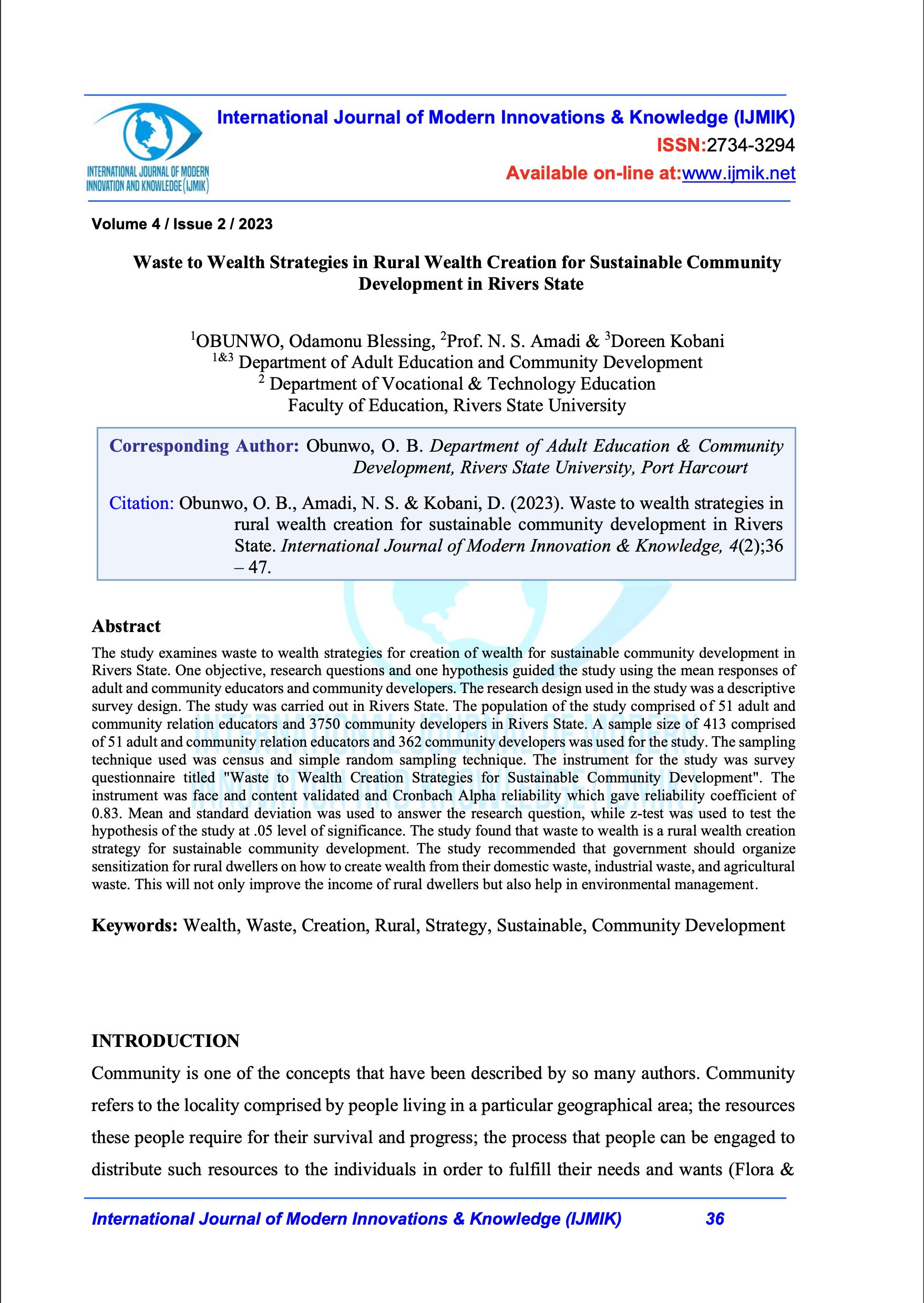Waste to Wealth Strategies in Rural Wealth Creation for Sustainable Community Development in Rivers State
Keywords:
Wealth, Waste, Creation, Rural, Strategy, Sustainable, Community DevelopmentAbstract
The study examines waste to wealth strategies for creation of wealth for sustainable community development in Rivers State. One objective, research questions and one hypothesis guided the study using the mean responses of adult and community educators and community developers. The research design used in the study was a descriptive survey design. The study was carried out in Rivers State. The population of the study comprised of 51 adult and community relation educators and 3750 community developers in Rivers State. A sample size of 413 comprised of 51 adult and community relation educators and 362 community developers was used for the study. The sampling technique used was census and simple random sampling technique. The instrument for the study was survey questionnaire titled "Waste to Wealth Creation Strategies for Sustainable Community Development". The instrument was face and content validated and Cronbach Alpha reliability which gave reliability coefficient of 0.83. Mean and standard deviation was used to answer the research question, while z-test was used to test the hypothesis of the study at .05 level of significance. The study found that waste to wealth is a rural wealth creation strategy for sustainable community development. The study recommended that government should organize sensitization for rural dwellers on how to create wealth from their domestic waste, industrial waste, and agricultural waste. This will not only improve the income of rural dwellers but also help in environmental management.

